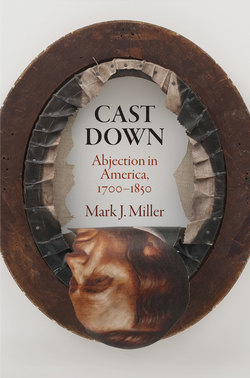Читать книгу Cast Down - Mark J. Miller - Страница 9
На сайте Литреса книга снята с продажи.
ОглавлениеCHAPTER 2
Indian Abjection in the Public Sphere
In January 1836, William Apess, a Pequot, adopted Mashpee, and former Methodist preacher, twice delivered his “Eulogy on King Philip” at the Odeon, a luxurious Boston lecture hall that was a short distance from the Brattle Street Congregational Church where Jonathan Edwards gave his first recorded revival. The “Eulogy” as part of its celebration of Indian martial and moral virtue and denunciation of English creole violence, took issue with an emerging racial conception of Indian drunkenness or what Edwards and his disciple, David Brainerd, had called Indians’ “drunken and Pagan howlings.” Apess’s long missionary career helped him recognize a new wrinkle in the Euro-American view of Indian drunkenness. Drunkenness had long denoted Indian abjection in the absence of European missionary sympathy and connoted human abjection in the absence of God’s grace. In the late eighteenth and early nineteenth centuries, however, the denotative and connotative value of drunkenness grew apart. Drunkenness and paganism, wedded together in the animalistic practice of inarticulate “howlings,” became more closely linked to an intrinsic racial identity rather than to faith or religious practice.
